Autores:
Andrea Censi Liam Paull, Jacopo Tani, Julian Zilly, Thomas Ackermann, Oscar Beijbom, Berabi Berkai, Gianmarco Bernasconi, Anne Kirsten Bowser, Simon Bing, Pin-Wei David Chen, Yu-Chen Chen, Maxime Chevalier-Boisvert, Breandan Considine, Andrea Daniele, Justin De Castri, Maurilio Di Cicco, Manfred Diaz, Paul Aurel Diederichs, Florian Golemo, Ruslan Hristov, Lily Hsu, Yi-Wei Daniel Huang, Chen-Hao Peter Hung, Qing-Shan Jia, Julien Kindle, Dzenan Lapandic, Cheng-Lung Lu, Sunil Mallya, Bhairav Mehta, Aurel Neff, Eryk Nice, Yang-Hung Allen Ou, Abdelhakim Qbaich, Josefine Quack, Claudio Ruch, Adam Sigal, Niklas Stolz, Alejandro Unghia, Ben Weber, Sean Wilson, Zi-Xiang Xia, Timothius Victorio Yasin, Nivethan Yogarajah, Yoshua Bengio, Tao Zhang, Hsueh-Cheng Wang, Matthew Walter, Stefano Soatto, Magnus Egerstedt, Emilio Frazzoli,
Publicado en RSS Workshop on New Benchmarks, Metrics, and Competitions for Robotic Learning
Link: Disponible aquí






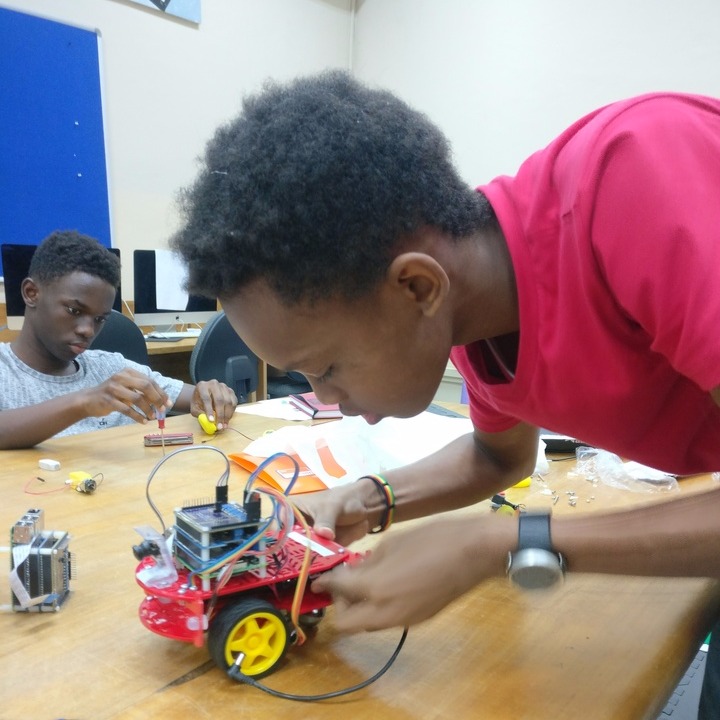
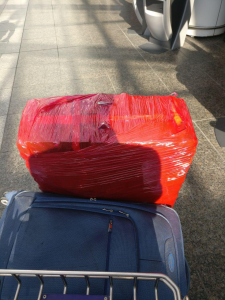
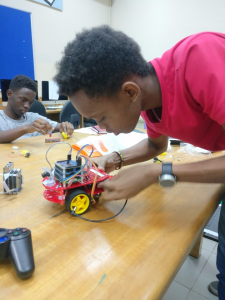
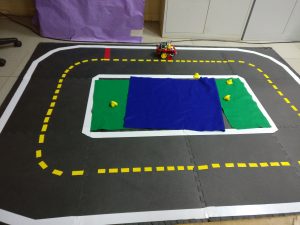 Moose the Duckiebot, up and running!
Moose the Duckiebot, up and running!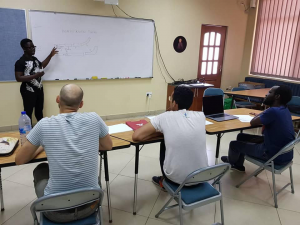 Presenting in front of the judging committee
Presenting in front of the judging committee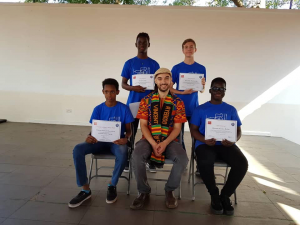 The best team!
The best team!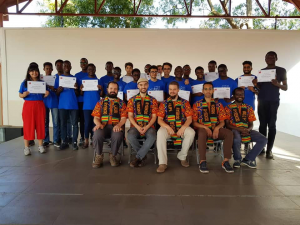 MISE 2018 – Ayeekoo!
MISE 2018 – Ayeekoo!


 .
.








